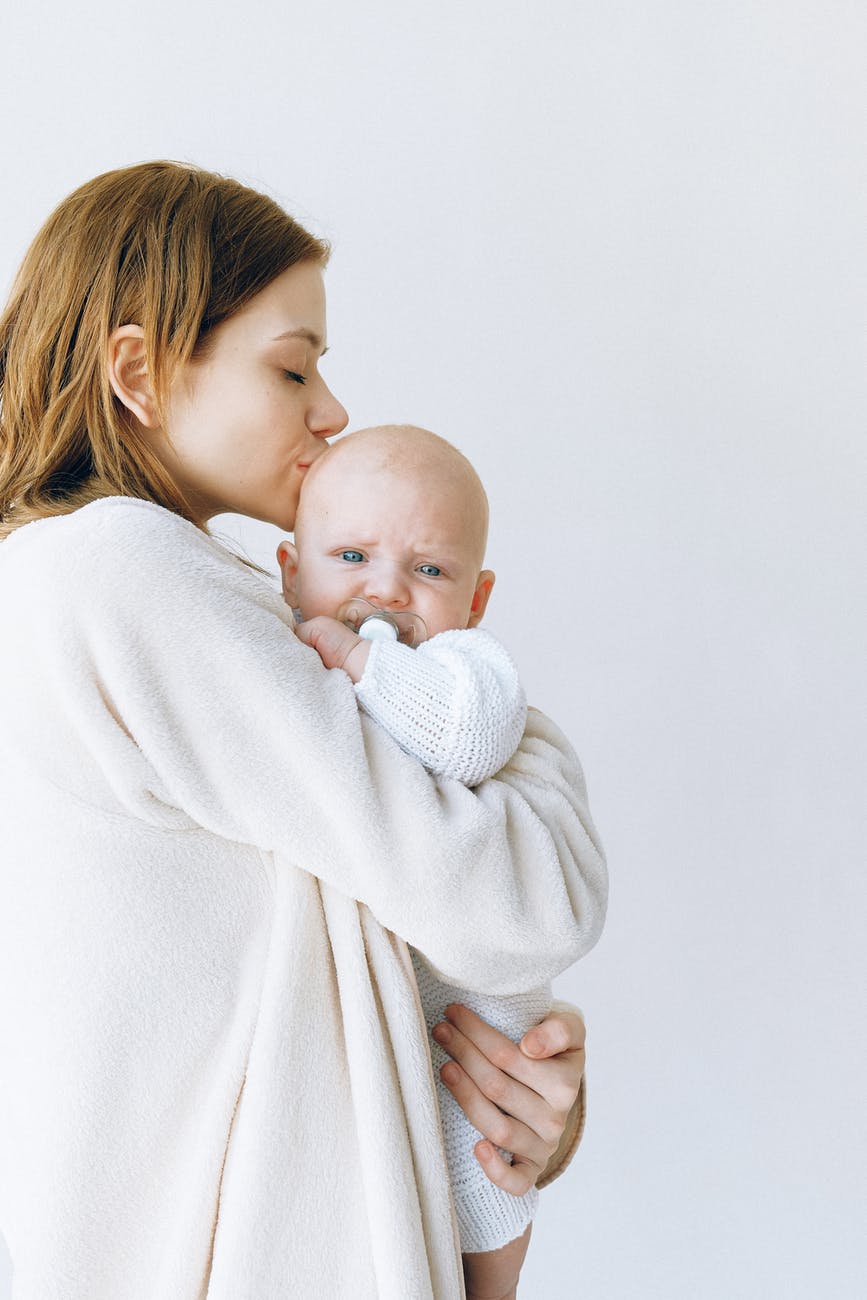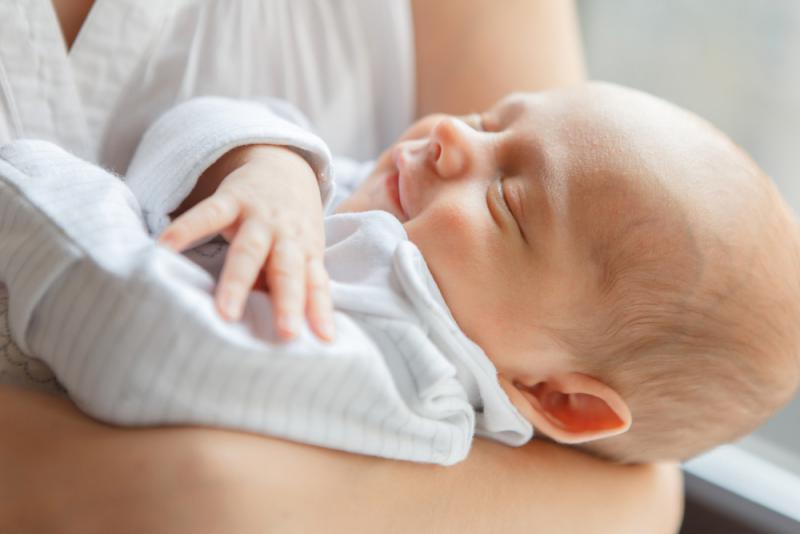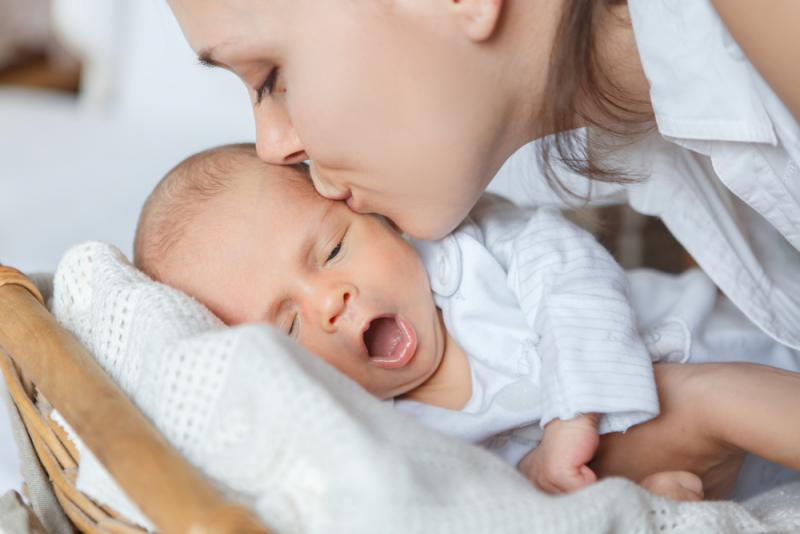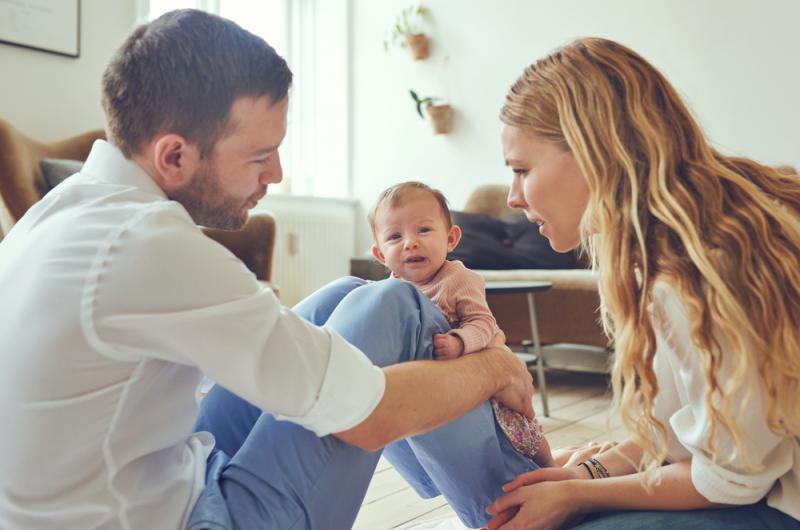How to handle your baby’s emotions?

Yes, our little babies do have a vast range of emotions, and they show them, just like adults do. Although every baby expresses their emotions in different ways, they’re probably doing it because they want your attention and response. They want you to understand their emotions, and give them whatever they need without asking.
Nurturing your little one’s emotions is very important for their better mental and physical growth. Teaching them how to handle their emotions will help them grow into well-rounded adults – and much less likely to have emotional issues.
Like the Pixar movie Inside Out, there’s a few major emotions a baby can experience; here’s how you can take care of them, and teach them how to nurture their emotional intelligence.

A sad baby
Usually, the first emotion a baby seems to show is sadness, through crying. In adults, crying typically denotes sadness, so we would automatically associate the tears of a baby to sadness, right? Not really – your crying baby may not be crying because they’re necessarily sad; they could be crying because they need something, and they have no other way to communicate with you. When they’re quite young, the main reasons for crying are usually related to discomfort, such as hunger or the need for a change of nappy. Who wants to be sitting in a wet nappy all day?
As your baby grows, they might cry because the sadness they feel in their surroundings, or because of pain they may have experienced from falling over and hurting themselves. Many have also noticed that babies can also feel the sadness experienced by their parents, and empathise with them; reflecting it back into the world and sharing their grief with them.
You may also find your little one might becoming abnormally quiet, or make quiet little whimpering sounds, very dissimilar to their normal crying.
Due to the strong bond between parent and child, you’ll come to recognise this sudden change in behaviour, and you’ll know when something isn’t quite right.
Chat with your bub. Tell them everything is fine, that you’re all right and so they don’t have to worry, or be sad. Make sure to cuddle them and rock them gently, and never forget to smile at them. But also let them know it’s okay to be sad, and that being sad is a part of life – and that you’ll always be there for them.

A happy baby
There’s nothing cuter than a baby smiling in their sleep – though it’s usually caused by an involuntary reflex. As your baby grows, they’ll grow familiar with their surroundings and the people around them. A baby smiles when they see a familiar face, especially when it’s one who takes care of them and cheers them up. Babies not only smile – they also quickly learn how to laugh and giggle when they find something hilarious, even if it’s something mundane or serious. Or you could be trying to do the silliest thing, or they’ll be sitting there giving you a serious face, wondering what in the hell you’re doing.
When your baby is in playful mood, they want you to play, spend time with them and talk to them. Responding to your baby and their needs would encourage them to stay happy and playful more often. You can also encourage them to have independent play, which leads to a healthy imagination, helping them to develop creativity and problem solving skills later in life – important skills to have.

A grumpy baby
Usually, when your little one is around a year to two years old, their grumpiness starts to become apparent – they don’t call it the Terrible Twos for nothing! Your baby might scream in anger;others stay quiet while their faces become red, and you might find tears rolling from their eyes. This is sure sign that your baby is mad about something. Chances are they didn’t like something you’ve asked them to do – most probably you said ‘No’ to them, a blasphemous word in toddler language. Hardly any toddler likes to hear the word ‘No’ in response to something they want.
Handling an angry baby can become a handful if not taken care of early. Many babies become stubborn, and refuse to accept anything said against their will. They can also learn to get angry and frustrated from their surroundings, which is why it’s important for parents to remain cautious while arguing or getting mad with anyone in front of their little ones.
While it’s great to encourage your baby to develop their range of emotions, teaching them that they’ll always get their way in life by screaming and throwing a tantrum is not a great standard to set. As difficult as it sounds, try to calm your bub down by getting them to relax – crying and yelling will get them nowhere. Try to teach them other methods to convey their message to you. For example, teach them to ask you to pass the water, please, or to point out what they would like so that you know what they’re after. If you instil an ethos of ‘We use our words, not screams’, they’ll realise that there are better ways to get what they want.
Help them to learn patience; they may be becoming angry because things aren’t unfolding the way they expect, such as they want their toy immediately, but you can’t give it to them because you’re busy, or you’re trying to fix it. An impatient child becomes frustrated and angry, but if they learn patience, it will help curb this behaviour.
You can also try giving your child quiet time, where no one talks to them. This helps the child to learn that whatever they do gains them no attention. However, if they show good behaviour, respond immediately to reward them.

A scared baby
Sometimes your baby might feel scared due to unfamiliar people, or unexpected situations and circumstances. Depending on your bub’s personality, you might find your baby could start screaming and crying, or would runs towards you to hide.
As your baby grows, they’ll be able to tell the difference between known people and strangers. This stranger awareness develops instincts of fear in babies. It is a good thing from one side, as it teaches your baby to stay away from strangers.
Another fear that your baby develops is fear of separation from you, most especially from mum. This is the reason they always need you to be beside them.
When in need, a baby can be taught to overcome this feeling of being separated from their parents or caregiver by handing them to someone well-known to bub already. If your baby develops a good relationship with a new person, then usually the fear of separation is no big deal. This is typically a temporary arrangement, as the baby would still be waiting for their parent at the back of their mind.
Try to get baby face to face to the people or things that they should not be afraid of. Show them that they’re not dangerous, and your baby doesn’t need to be scared of them. An example may be puppies – some children, having never met such big, scary, fluffy things before, may be terrified of them. Take their hand, and ask them to pat the puppy to get them familiarised with it. The fear will soon go away as they realise the puppy is not going to hurt them.


